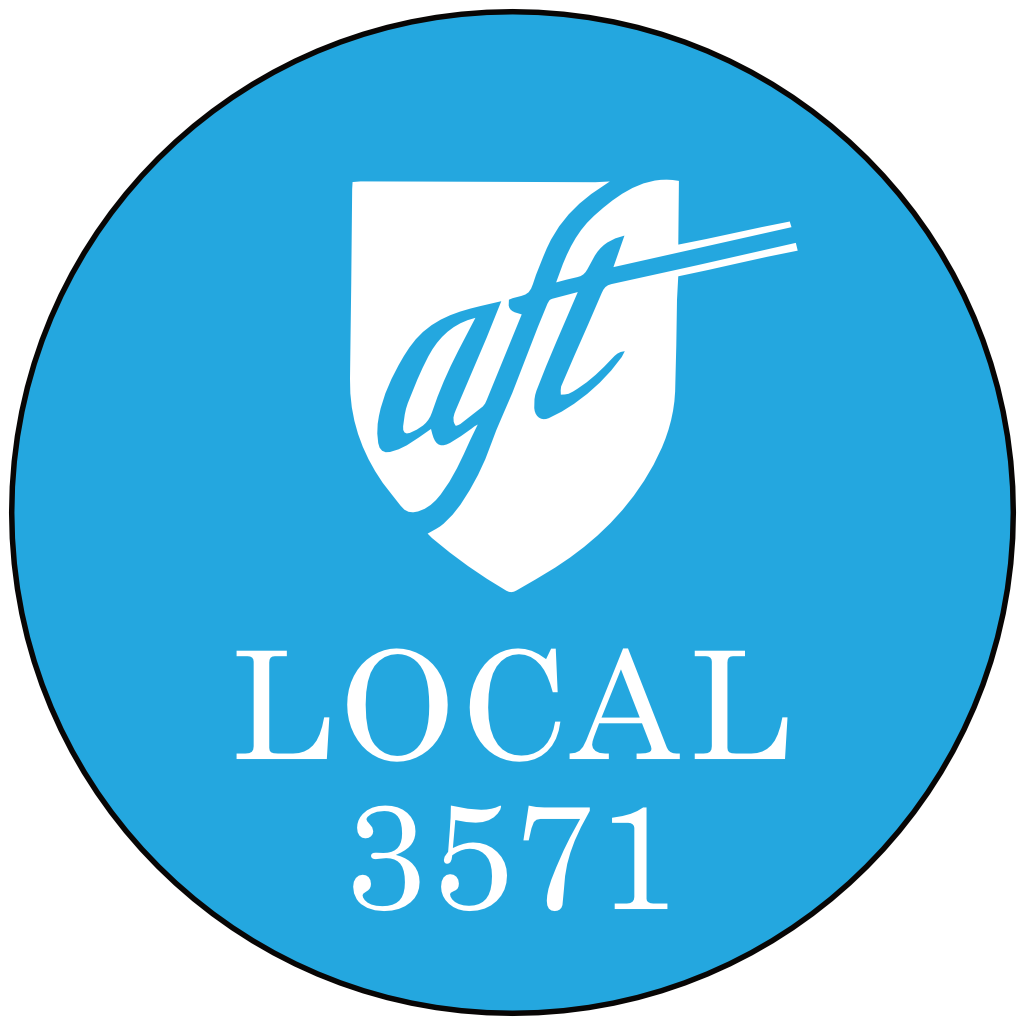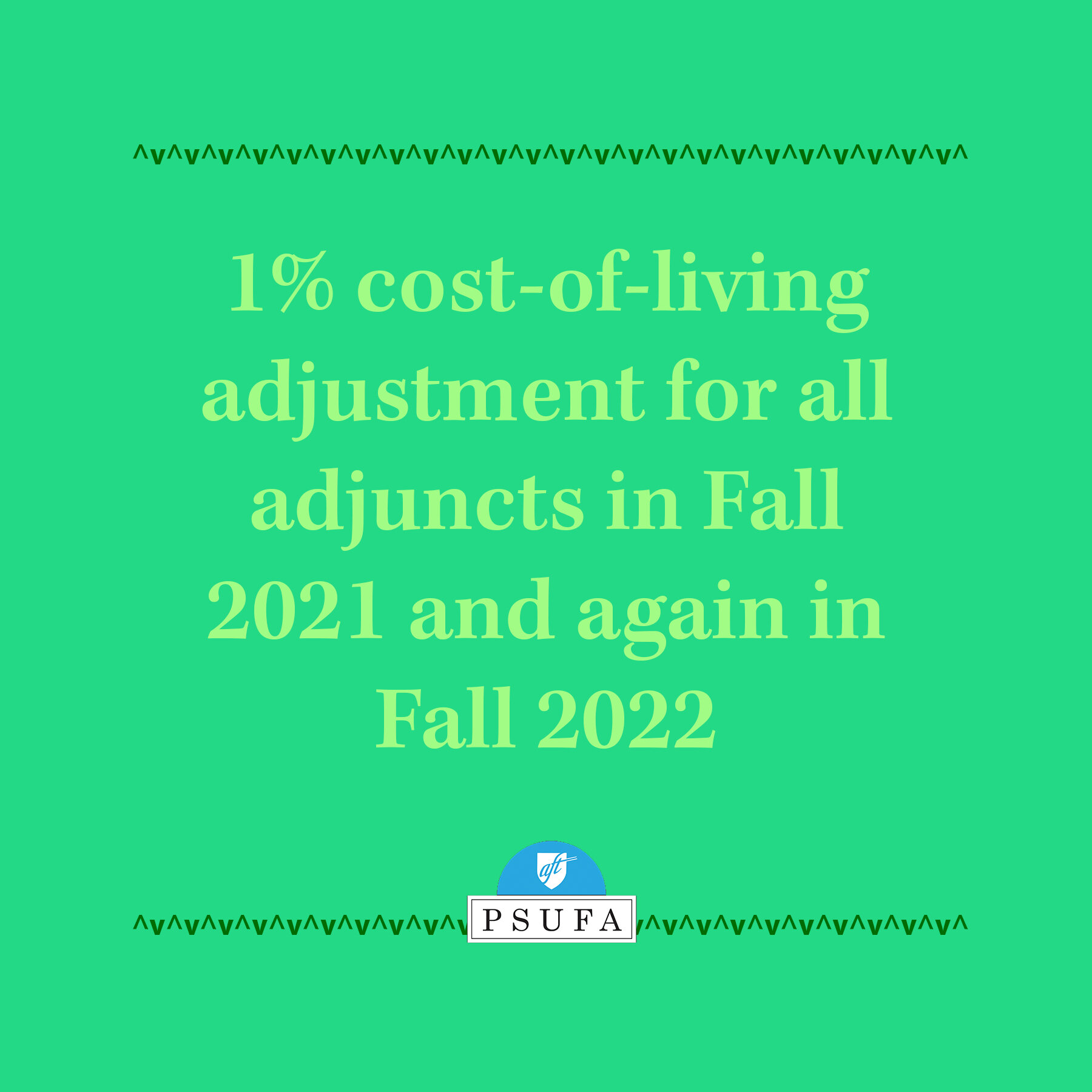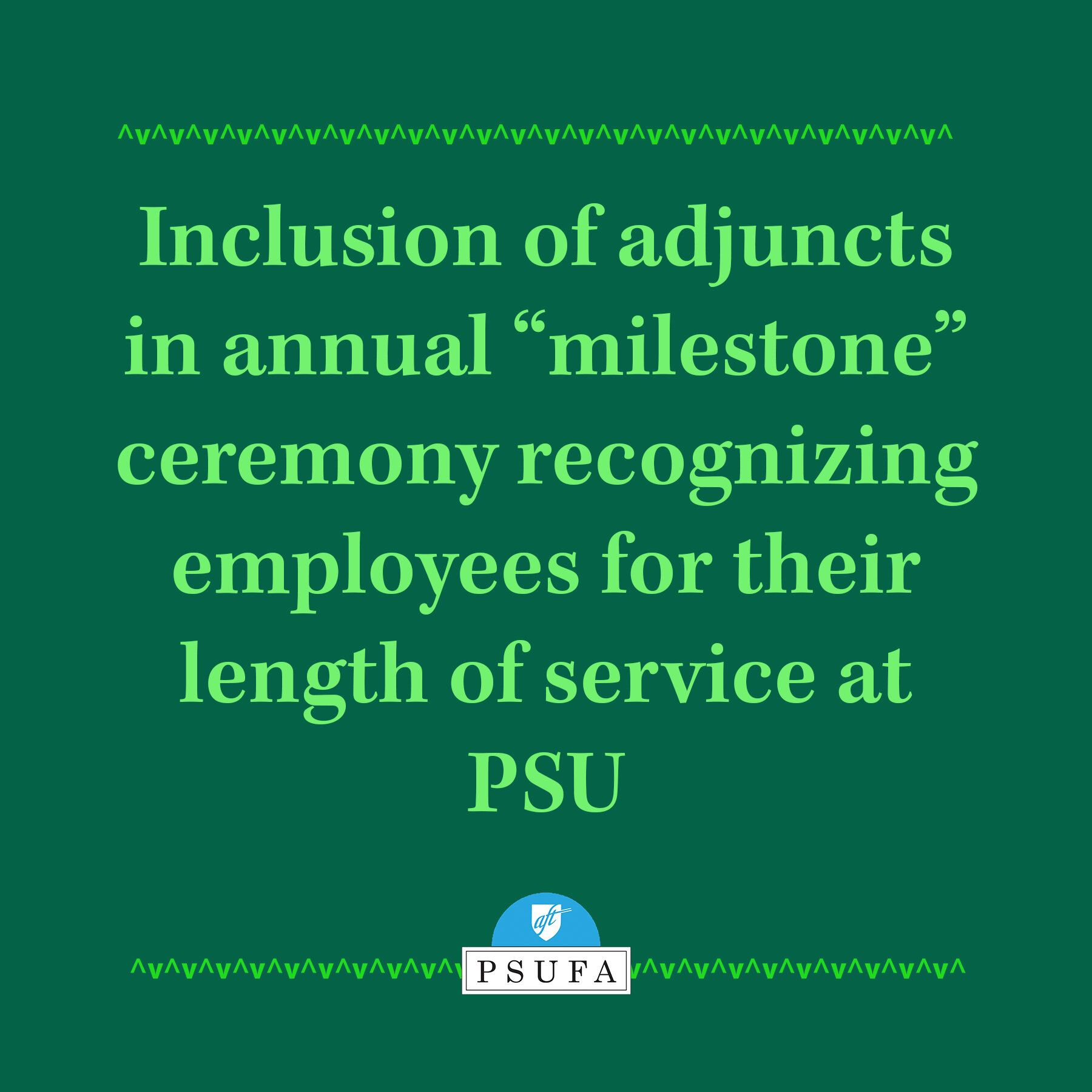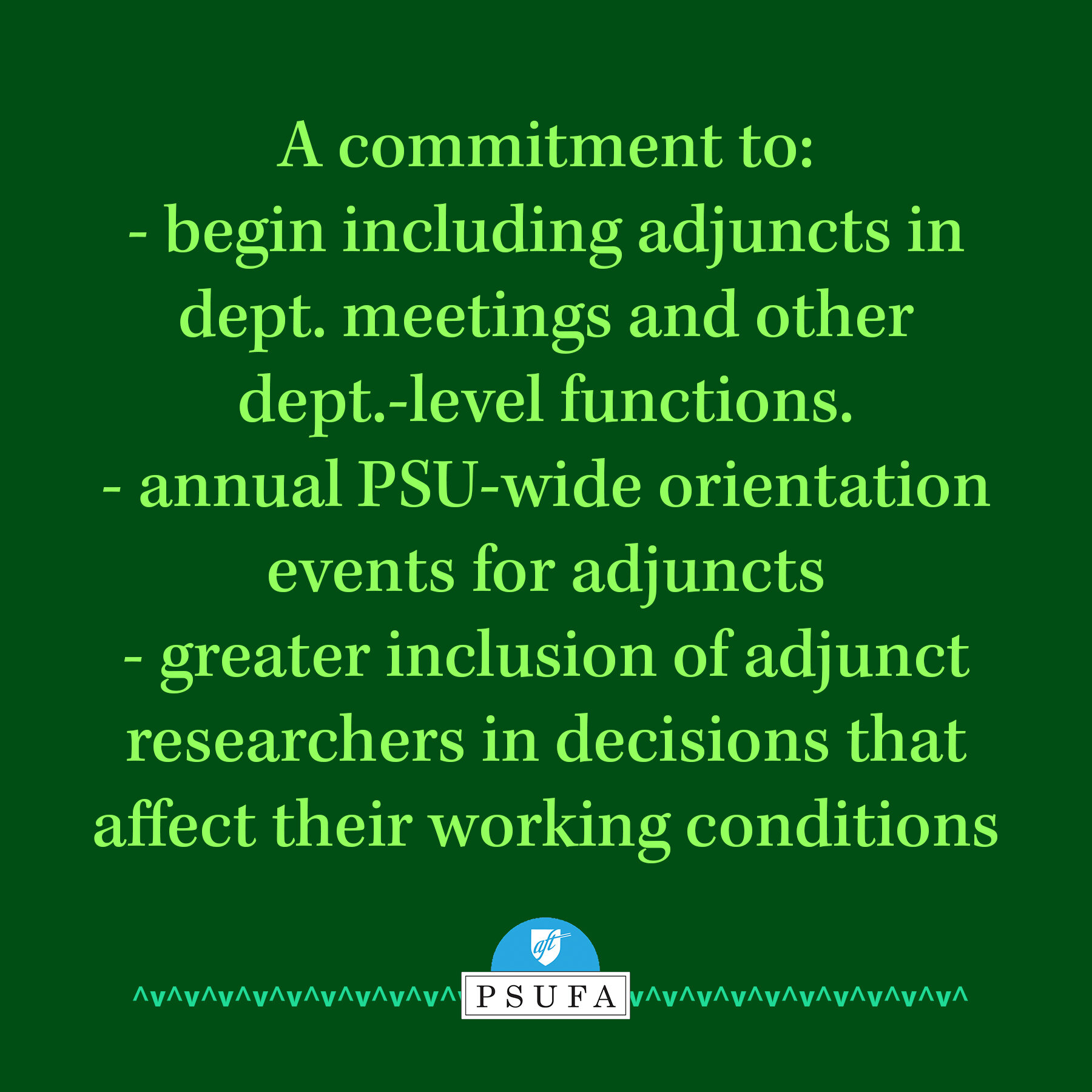We approached this day with full confidence that our economic package and response to PSU’s concerns from former sessions would set the stage for potential settlement. After PSUFA re-presented our full package offer, we were commended by the facilitator for honoring the negotiations in good faith and for “weaving” in and connecting PSU’s interests with our own. To be clear, we endeavored to honor this modified “interest-based bargaining” process, even when we were not always confident PSU was honoring the markers they set early in this process. Nevertheless, we persisted in our commitment.
After presenting our entire updated economic package, PSU requested a 45-minute caucus to discuss the various components of our package. We seem to have found more common ground with PSU on our COLA request (which they resisted until last December), our demand for a per-credit raise starting in Fall ’22, and the negotiated one-time payouts for adjunct instructors and researchers employed in Fall ’20 or Winter ’21, which was a modest win from PSU’s earlier position that it was possible no funds would be available at all.
PSU then presented a modified “staff-fee privilege” to our earlier request for expanded access in alignment with our colleagues on campus. Staff-fee privileges offer reduced tuition for members or one family member enrolled in classes at PSU. The administration hesitated to meet our demand for staff-fee privileges to extend to any quarter in the academic year in which we taught two or more classes in a term. PSU reminded us their initial position did not allow for family members or dependents—we resisted misreading this benefit our colleagues already enjoy at PSU, as well as a nonstarter for further negotiation. PSU then warned that there were additional tax obligations for the potential student and recommended a brief reporting process to be built into the mechanism for distributing these funds. PSUFA does not accept, though, that staff fee privileges cannot be extended to family, since that is the current benefit structure; we also do not accept that this benefit should be restricted to one quarter, if indeed a member is teaching or researching the equivalent threshold in other quarters. PSU’s overall claim that the entire process is incredibly complex, and that they have received internal, administrative pushback on our proposal is not persuasive. PSU, after a further hour discussion, agreed to our ask.
We then moved to what, perhaps, has been the most confounding issue for PSU and PSUFA to agree upon: compensated and voluntary inclusion in departmental or unit affairs and supported by PSU with a minimal pool of funds to support this essential effort at some hint at equity in governance. PSU has continually (even passionately) asserted they are entirely committed to this claimed shared interest, and campus-wide effort. Yet PSU is reticent to allow individual units or departments to provide, manage, or access this potential funding, nor have they shown interest in the multiple mechanisms proposed for this effort. Instead, they will commit to these funds only if it is entirely managed by PSU’s Labor Management Committee and not directly allotted to actual departmental inclusion and extra-instructional work. To be blunt, it is difficult to understand how delaying this shared interest through further administrative processes is helpful. Still, PSU did fully commit to the principle of adjunct inclusion as the obvious path for the University into the future. We believe the future is now. We will not renegotiate away from a promised $3800 to help fund a new mechanism of some type to be managed by Labor Management and to support adjunct inclusion in Departments. We moved forward securing these funds; we believe these funds will spark additional awareness and effort from PSU, and interest Department Chairs and other unit supervisors in realizing the ethical imperative and responsibility to labor in higher education.
After an hour-long question-and-answer session on PSU’s counterproposal, we paused for much needed emotional and physical sustenance, and in anticipation of bargaining long past our agreed upon eight-hour session.
After the break, we continued our negotiations on Article 8: Assignment Rights. This essential article is the heart of many detailed disagreements between our members and PSU. In essence, we have agreed that assignment rights are constant, and once achieved cannot be revoked. We remain concerned that PSU is not valuing rights as contractual obligations to us, and we will hold PSU to their contract obligation and commitment as they are now more clearly rewritten; grievance procedures should not be our only avenue of communication. We eventually agreed to a host of changes and clarifications to this Article, which moderately extended and clarified our assignment rights.
Our last hours together were spent on our final economic package proposal and Article 13. PSUFA has spent countless hours attempting to locate every possible angle where we believe, despite these uncertain times, that PSU should commit to more equitable remuneration. We have secured a one-time payout for Academic Year 2020-21 that, in the very least, somewhat offset PSU’s unmovable and maddening position that no raise could be possible for this year. Then, we reached a tentative agreement for per-credit raises for 2021-22 and 2023 and, in addition, 1% COLAS for Fall ’21 and Fall ’22. Initially, PSU refused to agree to any COLA considerations in initial bargaining sessions. Additionally, we secured a commitment for PSU and PSUFA to work collaboratively on an ad-hoc committee to recommend additional contract language, which we hope identifies, values, and integrates research faculty in more sustainable ways. This serves our member researcher, our union, and certainly PSU.
After many weeks of sub-group negotiations, Article 13: Benefit Funds was recomposed and funded in way that we believe maintains our current benefit structure, as well providing major new method for our union to target these funds for the benefit of our members: a new right for our leadership to move money between these funds to serve our members’ needs. We also negotiated further clarification on what might be categorized as “professional development,” and agreed that PSU’s focus on “primary research” might benefit the professions of our members in the long run by providing a broad academic category to advocate through. Finally, we secured an entirely new, if potentially temporary, technology fund for members to access.
After a final PSUFA caucus, and after nightfall, PSU and PSUFA came to tentative agreement on our Collective Bargaining Agreement, with an economic reopener in 2023.
It was a long year, filled with many ups and downs (and an unexpected pandemic) but we are very honored to be your colleagues and to have represented your labor in this effort. Further notification will be publicly released in a joint PSUFA-PSU statement soon, followed by a presentation for ratification by you, our members. Thank you.
In solidarity,
PSUFA Bargaining Team, 2020-21

















